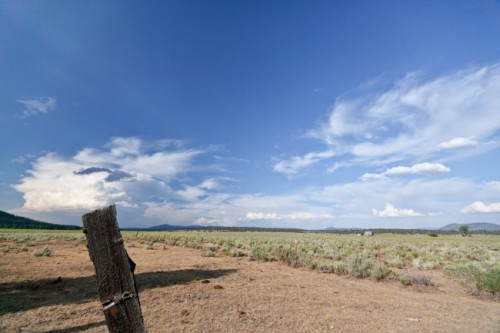This fall, I produced a story for Life of the Law exploring the unusual events during this summer’s drought in Southern Oregon’s Upper Klamath River Basin. A brief summary of the details: water use in the West is based on the legal principle of “prior appropriation,” better known as first-come, first-served. A series of courts ruled that the Klamath Tribes, inhabitants of the Klamath Basin for thousands of years, had water rights to time immemorial. That means the tribe’s claim to water in the Upper Basin is the most senior. During the drought, the tribe made a “call” for water—they shut off water to ranchers up stream to ensure adequate water flows into Upper Klamath Lake. The tribe made the call because two endangered species of fish, both of which are culturally significant to the Klamath Tribes, reside in the lake.
By shutting off water to ranchers, the tribe shook the very foundation of much of the region’s ranching culture and economic engine. In the arid, rural West, the myth of prosperity and fertility has in many ways been replaced by the stark reality of resource scarcity. This place, the Klamath Basin, is both an artifact of wholesale landscape conversion for ranching and agriculture.
And possibly a vision of political compromise. Since June 2013, a task force comprised of the basin’s critical stakeholders have been attempting to agree on a long-term solution to water use. Assembled were tribal representatives, ranchers, farmers, representatives from the Lower Basin federal irrigation project, and those interested in protecting the region’s biodiversity. The task force is attempting to solve this conundrum: how to balance consumptive water uses like ranching with non-consumptive uses like habitat preservation. That’s the upshot of this summer’s drought and call for water. Perhaps it’s forcing everyone’s hands to move forward.
In late December 2013, the task force shook hands on an “agreement in principle.” The key provision in the agreement is a 20 percent reduction in irrigation water drawn from the Upper Basin’s rivers. That water would flow freely into Upper Klamath Lake. Irrigation withdrawals will be achieved through “retiring” certain water rights in the Upper Basin. In turn, about 18,000 acres of land will be taken out of agricultural production. The tribes have agreed to not make a call for water in times of shortage if ranchers begin rehabilitating riparian zones along the basin’s rivers and adhere to the agreed upon withdrawal limits. This year, Oregon Senator Ron Wyden is expected to introduce legislation based on this agreement that will modify how water is managed in the Upper Klamath Basin.
The new agreement between the tribes and ranchers will be part of a broader resolution to the region’s water management called the KBRA, or Klamath Basin Restoration Agreement. This basin-wide agreement includes stipulations like removing four dams on the Lower Klamath River in hopes of restoring a salmon habitat.
One thing I explored in my audio story, “Water Rights,” are the legal issues that have plagued the Klamath Tribes since the mid-1800s. I also highlighted the 1954 Termination Act, which laid the foundation for the tribe to lose its 2.2 million acre reservation. The new agreement hashed out late last year calls for the tribe to purchase over 90,000 acres of private timberland to reestablish a land base for the Klamath Tribes. The federal government would provide the funding for the land purchase.
So far this winter, while much of the East Coast has been suffering effects of the “polar vortex,” much of the West has been stuck in high pressure. That means blue skies and no snow. The Klamath Basin snowpack, which like much of the West relies on snow for its water needs, stands at 32 percent of normal.
The drought continues. Yet the “agreement in principle” may help prevent last summer’s calamity.









